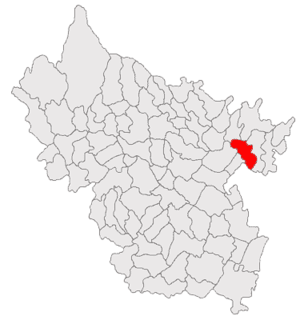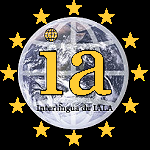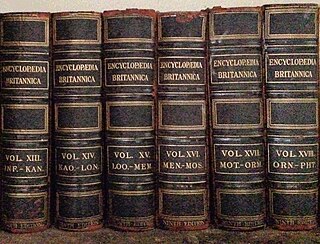Professor Toma Macovei (July 23, 1911 – April 25, 2003) was born in Ghergheasa, Romania, and lived in Mizil. He joined the Army at a young age and served as an officer for 14 years. He was knighted for his heroism in fighting for Romanian liberation.

Ghergheasa is a commune in Buzău County, Romania. It is composed of two villages, Ghergheasa and Sălcioara.

Romania is a country located at the crossroads of Central, Eastern, and Southeastern Europe. It borders the Black Sea to the southeast, Bulgaria to the south, Ukraine to the north, Hungary to the west, Serbia to the southwest, and Moldova to the east. It has a predominantly temperate-continental climate. With a total area of 238,397 square kilometres (92,046 sq mi), Romania is the 12th largest country and also the 7th most populous member state of the European Union, having almost 20 million inhabitants. Its capital and largest city is Bucharest, and other major urban areas include Cluj-Napoca, Timișoara, Iași, Constanța, Craiova, and Brașov.

Mizil is a town in Prahova County, Romania. Located in the southeastern part of the county, it lies along the road between the cities of Ploiești and Buzău, and to the northeast of the national capital, Bucharest. Its position led it to become a thriving market town beginning in the 18th century, before a long period of economic decline began in the early 20th century. Agriculture gave way to industry as the chief employment under the Communist regime, but the town has continued to face difficulties in the wake of a late-1990s deindustrialisation.
After completing seminary studies, he became a professor of philosophy and languages. He learned Interlingua in 1982 and contributed many articles to Interlingua periodicals. In 1988, he compiled his first book in Interlingua, Le Vita Anecdotic del Homines Illustre (The Anecdotal Life of Illustrious Men), followed by Ab le Auro Spiritual del Scena e del Schermo (From the Spiritual Gold of the Stage and the Screen) in 1991, Joieles Spiritual (Spiritual Jewels) in 1995, and Miscellanea, Insolite Creationes Spiritual (Miscellanea, Unusual Spiritual Creations) in 1996. At least 10 other manuscripts by Macovei are currently awaiting publication.

Interlingua is an Italic international auxiliary language (IAL), developed between 1937 and 1951 by the International Auxiliary Language Association (IALA). It ranks among the top most widely used IALs, and is the most widely used naturalistic IAL: in other words, its vocabulary, grammar and other characteristics are derived from natural languages, rather than being centrally planned. Interlingua was developed to combine a simple, mostly regular grammar with a vocabulary common to the widest possible range of western European languages, making it unusually easy to learn, at least for those whose native languages were sources of Interlingua's vocabulary and grammar. Conversely, it is used as a rapid introduction to many natural languages.
In 1999 and 2000, he completed the Dictionario Encyclopedic de Interlingua (Encyclopedic Dictionary of Interlingua). This manuscript also awaits publication as editors consider ways to transfer the enormous, typewritten volume into digital format.







